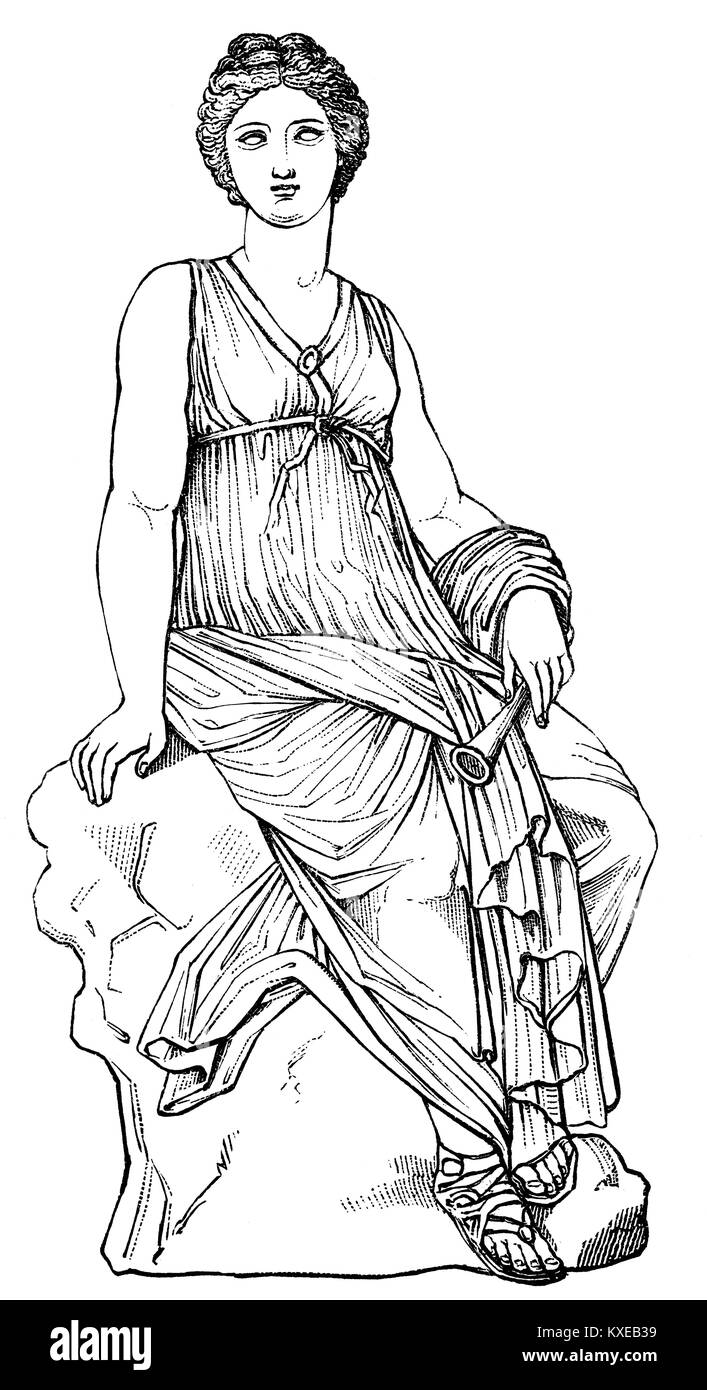

She appears the most in written myth, almost always in reference to her son. The Muse of epic poetry (poetry that tells stories), Calliope is known as “the chief of all Muses.” She is the mother of the heroic bard Orpheus and the goddess of eloquence. In ancient Greek literature and sculpture, it is the nine Muses who are mentioned, the other three having fallen out of popularity by worshippers and audiences alike. While the names Mneme and Mnemosyne are quite similar, it is unclear if one became the other, or if they were always separate beings in Greek mythology. Later records, including those of Pieros and Mimnermos, nine women made up the group, all of which were daughters of Mnemosyne and Zeus. The earliest sources of Greek myth offer three Muses bearing the names Melete, Aoede and Mneme. While they play very passive roles in Greek myths, they inspire great poets, guide heroes, and sometimes offer advice or stories that others may not know. The Muses, or Mousai, are inspirational goddesses. These nine daughters were better known as “The Muses.” Who Are The Muses? We know this because one year after being with the king of Greek gods, she gave birth to the nine mousai. While the works of Greek mythology are not entirely clear on the matter, it seems that she carried all nine of her children at once. Olympus, Zeus spent nine consecutive nights sleeping with Mnemosyne, “entering her holy bed, remote from the immortals.” What Kids Did Zeus Have With Mnemosyne?Īs a result of those nine nights with Zeus, Mnemosyne fell pregnant. In Hesiod, Mnemosyne is described as “with the beautiful hair.” In the hills of Eleuther, near Mt. Zeus, having recently slept with Demeter (and conceiving Persephone), then fell for her sister Mnemosyne. From the collection of mentions we are left with the following story: The short story of the supreme god, Zeus and his aunt Mnemosyne can be mostly drawn from the works of Hesiod, but small mentions are made in several other works of mythology and hymns to the gods. Mnemosyne was one of the many female Titans and is mentioned in the same breath as Themis, the Titan goddess of wisdom and good counsel. Mnemosyne was also an aunt to the other Greek gods and goddesses that made up the Olympians.Īccording to Hesiod’s Theogony, after Gaia created Uranus, the hills of the earth, and the Nymphs that inhabited them, she slept with Uranus, and from her came the Titans. This lineage also means that Zeus, who she later slept with, was her nephew. Her siblings, therefore, included the Titan gods Oceanus, a Greek water god, Phoebe, Theia, and the father of Olympians, Cronus. Mnemosyne is the daughter of Uranus and Gaia (Heaven and Earth). Today we only have one source for this esoteric knowledge – special tablets that were created as part of funeral rites.

This was seen as a special boon and only occurred rarely. However, he also points out that some historians say that Hermes was the god involved in doing this.Īs keeper of the “pool of memory” in the underworld Hades, often connected to or found instead of the river Lethe, Mnemosyne would allow some who crossed the ability to regather their memories of past lives before they were reincarnated. Praying to Mnemosyne would grant you memories of your past life or help you remember the ancient rites as the highest acolytes in a cult.Īccording to poet Pindar, when the Muses were unable to sing of the success of men’s work (because they did not succeed), Mnemosyne would be able to provide songs that “grant recompense for their labors, in the glory of music on the tongues of men.”ĭiodorus Siculus pointed out that Mnemosyne “gave a designation to every object about us by means of the names which we use to express whatever we would and to hold conversation one with another,” introducing the very concept of naming. Mnemosyne is the Greek goddess of memory and knowledge, as well as one of the keepers of the waters in Hades. You can say the name “Mnemosyne” as “Nem” + “Oh” + “Sign.” “Mnemo-” is a Greek prefix for memory and can be found in the English word “mnemonic,” an exercise “intended to assist memory.” What is Mnemosyne Goddess Of? In phonetic spelling, Mnemosyne can be written as /nɪˈmɒzɪniː, nɪˈmɒsɪniː/.

How Was Mnemosyne Depicted in Art and Literature?.Why Wasn’t It Popular to Worship the Greek Goddess Mnemosyne?.What Is the Connection Between Mnemosyne and Trophonios?.What Is the Connection Between Mnemosyne and Asclepius?.Why Is It Significant That the Muses Are Daughters of Mnemosyne?.What Kids Did Zeus Have With Mnemosyne?.What is the Story of Zeus and Mnemosyne?.


 0 kommentar(er)
0 kommentar(er)
